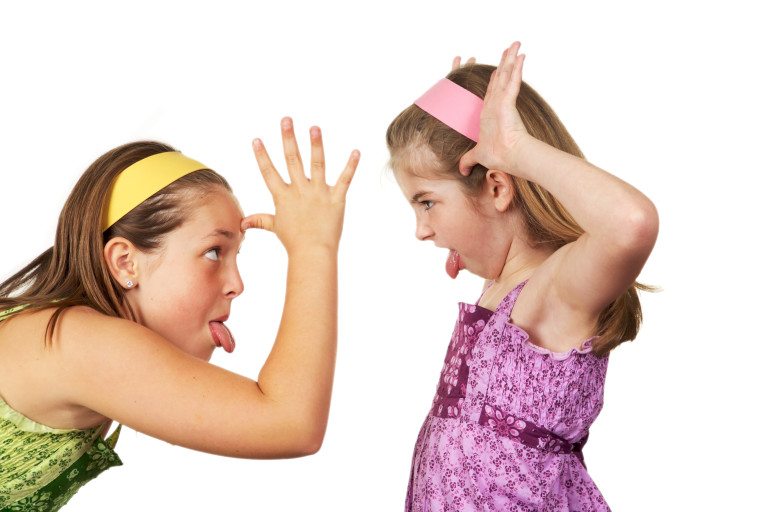
When Sally was sad because Jennifer wouldn't play with her, I offered, "Don't be sad. You have a lot of other friends and Dad and I love you."
When a knee was skinned, I said, "Don't cry. Here's a Band-Aid. See, it's all better."
When Johnny got a bad grade, there was no commiseration. "You need to work harder on your homework."
"I'm hungry." "No you're not, you just ate twenty minutes ago."

Algebra wasn't a hopeless enigma, worthy of tears. She just needed to work a little harder to understand it.
By the time they were teens, they were no longer sharing their feelings with me. In their eyes, I considered them bad, sick, and wrong for any of their negative feelings.
I did the same thing to myself. I felt guilty for feeling lonely and frustrated when my husband was out of town for work, or in town, but gone to meetings or helping with Boy Scouts, or church duties, leaving me to care for the children alone. I felt guilty for feeling sad when I had so many blessings. I felt guilty for feeling angry at my neighbor when she said some unkind things about my children. I felt guilty for feeling angry at my children when they disobeyed. Anger is wrong, so stuff it. Pain hurts, so stuff it. The only negative feeling I allowed myself was guilt.
Then I had a child die. I couldn't bear the sorrow, so I refused to feel it.
The trouble with stuffing negative feelings is that you also lose the ability to feel positive feelings. I didn't cry, but I didn't laugh either. I didn't feel pain, but I didn't feel joy. I didn't hate, but I didn't feel love. I knew my husband loved me, but I didn't feel it. I knew I loved my children, but I didn't feel it. I knew God loved me, but I felt no love from Him.
I learned a better way from my sister, and later my daughter. My sister went through a painful divorce. She says, "When I start feeling sad, or angry, or sorry for myself, I allow myself half an hour to feel that feeling. I cry and stamp and cuddle myself. Then, when time is up, I put it away. I know the only way to the other side of the pain is through it, so I want to feel it. But I don't want to wallow in it. I feel it, then I put it away until the next time.

I was visiting my daughter and her family when her son expressed anger. "Don't feel like that," I started to say. My daughter corrected me. "It's OK for him to be angry. I'd be angry too if that happened to me. He can feel angry, but he can't hurt others or himself because of his anger." In other words, the feelings were free to be felt, but the behavior needed to be checked.
She taught me that children need to learn that it is okay to feel whatever they feel. We can then teach them that what they DO is a different matter. Feeling angry doesn't mean it is okay to avoid chores or hit someone. Feeling sad isn't a permanent condition, but is an important life experience. How can children learn to understand the difference between feelings and actions when we discount their feelings? Once children have their feelings validated, and have an opportunity to calm down, they are usually open to appropriate actions.

Now when I feel like fixing, squelching or denying feelings in my grandchildren, I try to just validate them--through a question or a statement. "How are you feeling about that?" "I can see that makes you very mad." "Little brothers can be so annoying." This helps children to feel understood and allows them to discover that they can work through their feelings and learn from them.
It was difficult for me to learn to feel again. I started by making a list of feeling words and when I felt "bad," I would go down the list and discover what I was really feeling, whether it was anger, fear, sadness, frustration, boredom, hate, or hurt. I learned to cry again. I got the courage to express my feelings to myself, then to God, and finally to my husband. I prayed nightly to feel love. I wrote out my negative feelings in a journal. Slowly the joy came back into my life. One glorious evening I felt God's love all around me, like a gentle mist that had always been there, but which I hadn't felt. I now feel adored by my husband, and my heart is overflowing with love for my children and grandchildren.

Feelings are important. They aren't good or bad, they just are. And it's OK to feel.





